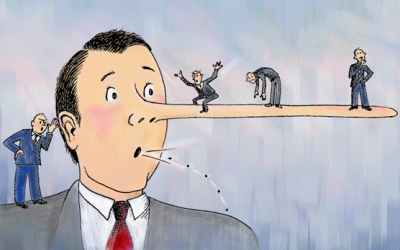
It’s so difficult to know who’s sane and who isn’t these days. In the Post-Truth Age, anyone can simply assert anything, no matter how ridiculous, and be taken seriously by hordes of morons. The only reasonable approach seems to be to declare yourself perfectly mentally healthy and everyone else variably so – depending on their relationship to you.
What a lot of people don’t realise is that, aside from the technology of pharmaceutical drugs, mental healthcare hasn’t advanced in 3,000 years, and in significant area has in fact gone backwards, as genuine wisdom inherited from previous ages is forgotten.
Because the wide world all fits into categories of earth, water, air and fire – and always has done – it is possible to fit all of the human personality types into these categories as well.
With regards to mental healthcare, one can simply do this by declaring oneself to be the fulcrum of sanity around which the world rotates, and then applying the four temperaments theory to everyone else.
So “modern” mental healthcare is mostly a matter of dressing up four temperaments theory in a cover of psychiatric jargon.
For example, patients who are sad no longer get diagnosed with melancholia, but with depression. The melancholic personality type, which is associated with a tendency to depression, is now called avoidant personality disorder.
Fittingly for melancholia, which is represented by earth and is consequently the most feminine of all of the conditions, avoidant personality disorder is characterised by feelings of inadequacy and a hypersensitivity to criticism.
Diagnosing someone as depressed and prescribing anti-depressants today is not significantly different from diagnosing someone as melancholic 3,000 years ago and prescribing them cannabis sativa.
The dependent personality, characterised by clinging and submissiveness, also falls into this category.
Marginally more warm-blooded people fall into the phlegmatic category of person. These usually end up getting diagnosed as schizoid or schizotypal, because their phlegmatic nature makes them broadly indifferent to social contact.
Some phlegmatic people are nonetheless capable of extracting small amounts of pleasant feelings from hoarding things. So if you meet a person who appears indifferent to much of the outside world, don’t be surprised if you end up finding out that they hoard newspapers.
Even more warm-blooded people – those who used to be called sanguine – lead us into the domain of the borderline and the histrionic personality disorders.
Unlike people in the previous two categories, these types are much more outgoing – indeed, one of the major distinctions relates to whether the condition causes problems for the person who has it or for other people, and the more warm-blooded a person is the more likely they are to cause problems for other people.
Borderline personality disorder is characterised by instability and impulsiveness, and a person is more likely to be impulsive the more warm-blooded they are.
Histrionic personality disorder, likewise, is too noisy and dramatic to fall into the categories of melancholic or phlegmatic disorders.
These two conditions have the common factor of both being primarily socially orientated. In much the same way that a mentally healthy sanguine person might be described by friends as easy-going, witty and spontaneous, a mentally unhealthy sanguine person would be like a reflection of this in a dark mirror.
Instead of wit there comes verbal abuse and manipulation, and instead of spontaneity there comes a puppet-like mindless lurching from one impulse to another.
The most hot-blooded kind of person was referred to as a choleric personality in ancient times. In modern times, a person like this causes problems because of being too aggressive or domineering.
Consequently, cholerics are often narcissists, possessing a grandiose desire for the admiration of others. This becomes unhealthy when the desire for this gets out of control and they try to force or bully others into showing admiration against their will.
At the most extreme, the choleric personality manifests as antisocial personality disorder, characterised by a pattern of disregard for the rights of others. In particular, the antisocial personality does not recognise rights as anything more than the ability to enforce them.
This is why the antisocial personality so frequently commits murder – if it has the capacity to kill it considers itself to have the right to do so, for if it did not it would not have the capacity.
Antisocial personality disorder could be considered a way of having an excess of masculinity, in the sense that the desire of a person with it is to impose a degree of order upon the world that inevitably brings them into conflict with other people.
Alchemically speaking, it is possible to see this four temperaments theory as representing the spectrum of personality from unhealthy feminine at the melancholic end, to unhealthy masculine at the choleric end.
Correspondingly, the melancholic personality at the feminine end is, at its least healthy, at risk of killing itself, and the choleric personality at the masculine end is, at its least healthy, at risk of killing another.



